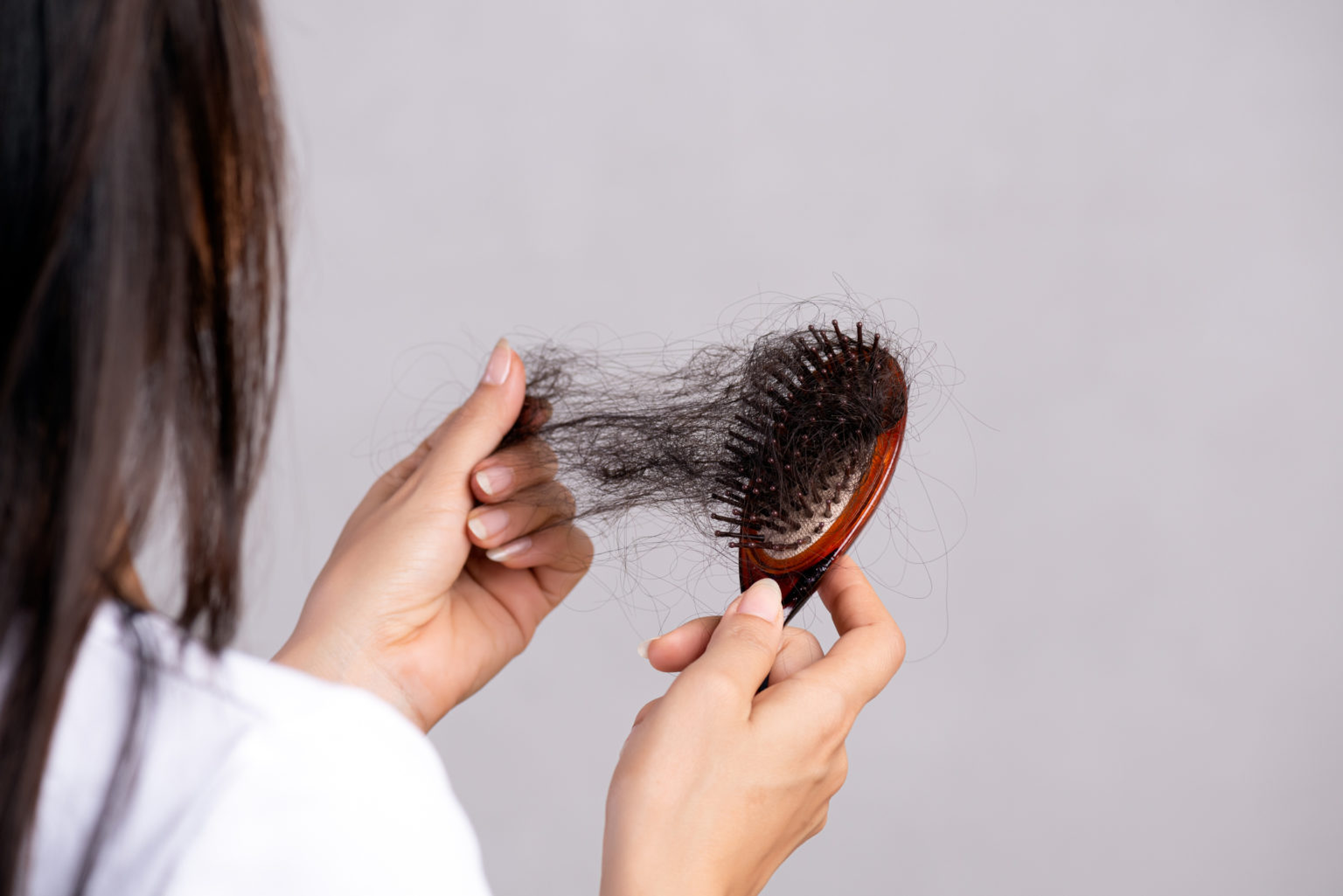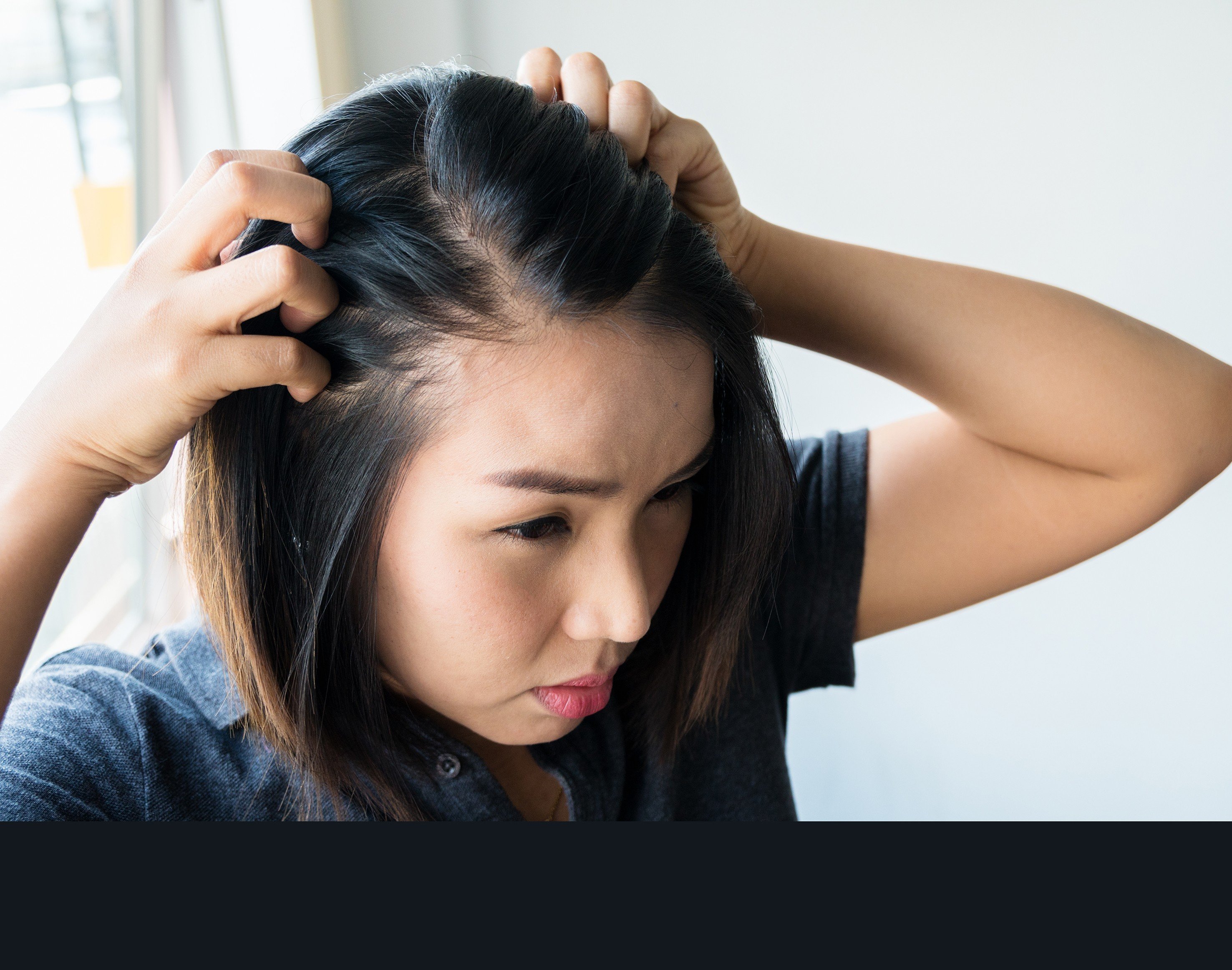Table Of Content

According to the American Academy of Dermatology, it’s completely normal to shed anywhere between 50 to 100 strands of hair per day. However, if you’ve noticed more strands falling out of your head than normal, you may be experiencing alopecia, the medical term for hair loss. Common diagnoses include androgenetic alopecia, alopecia areata, telogen effluvium, and lymphocytic scarring alopecia, Agbai tells USA TODAY. Genetics, hormonal changes, inflammation and even certain diseases — including, in some cases, COVID-19 — can trigger temporary or permanent hair loss. And prescription drugs may also trigger excessive and sudden shedding.
Men's Health
Possible Ozempic side effects, including hair loss, probed by FDA; no link found to suicidal thoughts - CBS News
Possible Ozempic side effects, including hair loss, probed by FDA; no link found to suicidal thoughts.
Posted: Thu, 11 Jan 2024 08:00:00 GMT [source]
Minoxidil is approved by the Food and Drug Administration (FDA) as a treatment for female pattern hair loss. The type of drug, type of hair loss, dosage, and your sensitivity to the drug are all important factors in how severe the side effects will be. The hair loss that occurs as a result of medication use can affect all hair growing on the body. A 2017 pilot study involving 100 females with hair loss concluded that combining spironolactone with minoxidil may be a safe and effective treatment for FPHL.
Treatments for Alopecia and Hair Loss
Treatment for this type of hair loss centers around treating the active fungal infection. Most baldness is caused by genetics (male-pattern baldness and female-pattern baldness). Minoxidil stimulates hair growth and should be used with other treatments. Medications that treat thyroid disorders may cause hair-related effects, such as hair loss, dryness, or brittleness. However, thyroid conditions can also contribute to hair thinning and shedding, so it might be difficult to know whether the hair loss is due to your medication or the condition. Hair loss with SSRIs and bupropion, although possible, is not as common.
Minoxidil shortage creates issues for some dealing with alopecia, hair loss - NBC News
Minoxidil shortage creates issues for some dealing with alopecia, hair loss.
Posted: Mon, 30 Oct 2023 07:00:00 GMT [source]
Mayo Clinic Press
In one study of 127 patients with patchy alopecia areata, more than 80% who were treated with these injections had at least half of their hair regrow within 12 weeks. But medications for other conditions can also cause hair loss, and certain drugs can contribute not only to hair loss but excessive hair growth and changes in color and texture as well. "With telogen effluvium, your hairs shift prematurely into the telogen/resting phase, stop growing and then shed, usually a few months after starting a medication," Dr. Massick says. As with most hair loss medications, don't expect to see hair growth overnight. After starting Rogaine, it can take a few months to notice changes.
DHT is responsible for causing hair follicles to shrink, resulting in hair loss. Rogaine was originally developed as a medication for blood pressure. When it was first being studied, doctors observed hair regrowth in those taking it.
Choosing a Medication for Hair Loss Treatment
Most medications that cause hair loss affect hairs in the resting phase. The effects of drug-induced alopecia often appear within 3 months of an individual starting on a particular medication. Drug-induced hair loss, like any other type of hair loss, can have a real effect on your self-esteem. The good news is that in most cases, it's reversible once you stop taking the drug.
10 habits for good health
Both the CDC and the FDA warn against treating this common childhood condition on your own with non-prescription treatments. There are also some anticonvulsant medications, such as valproic acid, carbamazepine, and phenytoin, as well as certain antidepressant drugs, such as lithium, that may be linked alopecia. Individuals who cannot visit or do not feel comfortable consulting a physician in person can consider using a telehealth service to discuss their hair loss and get a prescription. BlinkRx is an online pharmacy that claims to provide people with the lowest prescription prices for a wide range of medications. Older research showed that in a group of over 2,500 Japanese men, 87% saw an increase in hair growth. 11% of men saw a significant increase in hair, with 36% experiencing a moderate improvement.
Exactly how these biologics cause hair loss isn’t known, but clinicians suspect it’s because these drugs change your body’s natural balance of messenger molecules called cytokines. It’s important to keep in mind that hair growth is a complex process and multiple tests may be needed to understand what is causing your hair loss. A biopsy may also be taken if it is initially very unclear what the root causes may be.
Cooling caps before, during and after each chemotherapy session may help stave off hair loss. Male-pattern baldness typically appears first at the hairline or top of the head. With telogen effluvium, hair loss may not be severe and may not affect much hair. Usually, the hair loss goes away on its own without any treatment. The doctor will discuss any alternative treatment options and ensure that a person switches safely to any new medications. Read on to discover which medications can cause drug-induced alopecia and learn how to stop or reverse hair loss.
The study participants experienced increased hair growth and reduced shedding. However, this study had several limitations, and more research is needed to confirm its results. Or patients may be prescribed a number of medications simultaneously, further confusing the diagnosis.
Chemotherapy drugs often lead to the anagen effluvium type of hair loss. As these drugs kill cancer cells throughout the body, they also can damage healthy cells, including hair matrix cells. The hair typically starts to fall out within two weeks of starting chemotherapy and progresses more rapidly after one to two months, according to the American Cancer Society. Hair loss is more common and severe in patients taking combinations of chemotherapy drugs than in those who take just one drug.

Some research connects excess intake of vitamin A or selenium with an increased risks for hair loss. Hair transplant surgery involves moving small plugs of skin, each with a few hairs, to bald parts of your scalp. If your blood test reveals that you’re not getting enough biotin, iron, or zinc, your dermatologist may recommend taking a supplement.
Our hair goes through different stages of growth, and the type of hair loss is usually classified based on what stage of growth your hair is in when it falls out. People should also speak to a doctor to determine whether another underlying issue may be causing hair loss. If stopping or switching medication is not an option, people may be able to slow the rate or hair loss or help reverse hair loss using home remedies and natural solutions. Many prescription and some over-the-counter medications can cause hair loss as a side effect. Supplements, topical applications, and changing medications may help to resolve hair loss. Your appearance, and therefore your hair, can be a source of confidence.
Female-pattern baldness typically starts with scalp hairs becoming progressively less dense. Many women first experience hair thinning and hair loss where they part their hair and on the top-central portion of the head. If you have already inherited male or female pattern baldness, a form of permanent hair loss, taking drugs for arthritis might trigger or accelerate it. Anagen effluvium is less common, but will occur during the anagen phase of the hair cycle, when the hairs are still actively growing. It will prevent the matrix cells, which are responsible for the production of new hairs, from dividing normally. This type of hair loss will usually occur within a few days or weeks after you start taking the medication responsible.
Diet can't reverse your hair loss, but it can help minimize some of the damage, Dr. Massick says. "A well-balanced diet with vitamins, minerals, nutrients and protein is important," she adds. Blood thinners are an important medication for those at risk of blood clots and those with heart conditions like irregular heart rhythm, heart attack or stroke, per the Oklahoma Heart Hospital. Here are some of the more common drugs that can cause both, per the American Hair Loss Association. The easiest way to lookup drug information, identify pills, check interactions and set up your own personal medication records.
They can help you find an alternative medication and ensure a safe switch if necessary. Be patient, though, as hair regrowth after discontinuing the medication may take several months. However, individuals who receive the same drugs and undergo the same treatment can still have different hair loss experiences. On the whole, it’s important that you speak with your doctor about any symptoms you’re experiencing. A dermatologist can provide a proper diagnosis, and select a personalized treatment that will help restore health to you hair and scalp. Baldness is often hereditary, and is activated by a shift in your hormones.

No comments:
Post a Comment